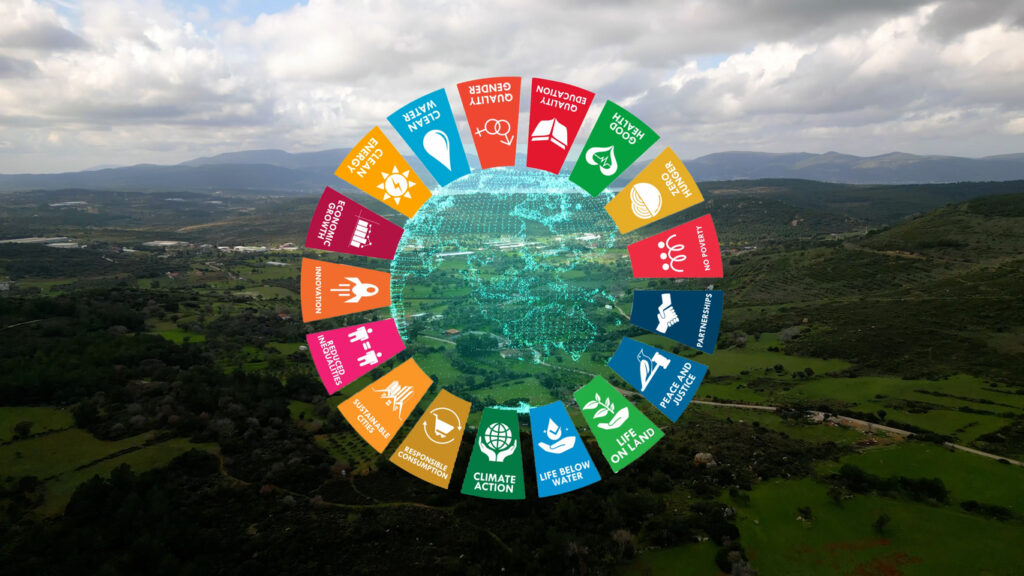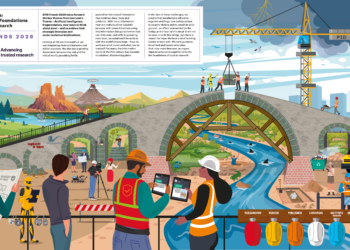While ‘sustainability’ can be understood, prioritized, acted on, and measured in different ways, it essentially concerns with how we manage and use natural resources now and for the future, but also underscores social and economic aspects of our greater wellbeing. The related concept ‘sustainable development’ sees sustainability through a long-term growth lens by bringing three core pillars together: economic, social, and environmental sustainability. Another step forward, the United Nations Sustainable Development Goal (SDG) Framework offers paths along a sustainability journey agreed upon by world leaders in late 2015 for a 15-year time-span.
For the scholarly publishing ecosystem, the concept of sustainability is diverse and evolving. It could mean surviving and growing through a variety of business models, maintaining relevance amidst numerous challenges, or playing individual roles in the global sustainable development efforts, such as the SDGs. But recent conservations with colleagues from the publishing sector highlighted that some publishers, especially not-for-profit learned societies with a few journals and limited revenue (the so-called “smaller publishers”) could be overwhelmed by the sheer numbers that make up the SDGs: the deadline of 2030, 17 Goals, 169 Targets, and 232 Indicators. Interrelationships and overlaps among the Goals make it even more complex to follow.

Four years back, in October 2020, the Frankfurt Book Fair marked the start of a concerted effort for the publishers to take action on the SDGs. The SDG Publishers Compact clearly outlines which 10 actions a Compact signatory should be taking to make a difference. As of October 11, 2024, 394 publishing entities have adopted the Compact (Europe: 180, the Americas: 92, Asia and the Pacific: 83, Africa: 29, and the Middle-East: 10).
The sustainability conversation has, however, come a long way since then. The SDG Compact Fellows, for example, have suggested 12 sets of Top Action Tips for different publishing stakeholders to take sustainability actions. The International Publishers Association (IPA) has recently revitalized its SDG Dashboard through its new ‘1000 Actions Campaign’ to capture SDG-related best practices. In August 2023, the STM launched a 5-phased roadmap which publishers can follow to walk along the sustainability path. And, as I mentioned during a panel discussion at the ALPSP Annual Conference 2024 in Manchester in September, the European Association of Science Editors (EASE) had been developing two checklists for publishers/organizations and journals to track their progress towards sustainability.
Despite all these tools, smaller publishers could still struggle to take sustainability action. This seems to be not only a question of defining and understanding sustainability, but also a question of prioritizing the notion and action of sustainable development. In this connection, let me share the results of a survey conducted by the EASE and Higher Education Sustainability Initiative (HESI) back in late 2022, which was published on October 7, 2024. The survey showed significantly lower awareness of the SDG Publishers Compact among the respondent smaller journals, chiefly from Europe, compared with that of the SDGs. Despite that, most of the respondents showed environmental awareness and reported actions supporting at least one SDG. While most of these organizations/journals prioritized the SDG4 (Quality Education) over the 16 other Goals, they had no SDG-focused budget allocations, no integration of the SDGs in their workflow, and no baseline to measure changes over time.
It would not be surprising to hear these organizations ask, as smaller publishers, why should we be concerned about the SDGs anyway? Such a question might arise when we see sustainability/SDGs as i) an unrelated add-on to what we are supposed to do as publishers, ii) an additional financial and human resource burden for an already resource-constrained organization, and iii) that these are two of many jargon-laden concepts that often come about to stir the industry, but that will eventually pass, and we just need to wait for a while.
This line of thinking misses three important aspects in the sustainability/SDG conversations. First, as publishers, we are all international entities. It doesn’t matter where we are located—Bangor, Beijing, or Bogota, we are in the business of disseminating knowledge, which is always global in nature. We therefore can’t shy away from global conversations and actions as big as the SDGs. Second, we are already contributing to the SDGs by making new knowledge available on food security (SDG2), education (SDG4), equality (SDG5 and SDG10), climate change (SDG13), and global cooperation (SDG17), for example. But we can’t stop there. We need to find a way to track how this knowledge is creating real impact on the ground, by getting it out of journal pages or preprint servers. We need to identify paths so that the articles we publish don’t just become references in a follow-up article or turn into fresh numbers in updated bibliometrics such as Impact Factors or Citescores. Third, the current global understanding and framing of sustainability/SDGs is built on what publishers have been publishing in books and journals. So, we publishers have a moral obligation to look into ourselves, promote sustainability within, and contribute to global actions by focusing on our activities in one or more SDGs.
Let’s again focus our attention on smaller publishers. While listening to a panel at the ALPSP Conference 2024, I started thinking about why we brand certain publishers as ‘smaller’. The publishers represented on the above panel were the Royal Irish Academy(237 years old), the British Association of Dermatologists (its British Journal of Dermatology is 136 years old), and the Rockefeller University Press (122 years old). Together, they have 495 years of contribution to the world. Similarly, there are many other publishers who have survived a couple of pandemics, many wars, several economic depressions, and some massive changes in political boundaries—quite a resilient group indeed! I believe, with such a wealth of experience and rich legacies, they should come forward and change the narrative that describes them as ‘smaller’. To do so, they need to broaden their attitude, perspectives, and actions.
The values and philosophies on which the ‘smaller’ societies/publishers are founded could make them ‘big’ in three ways by shaping and leading sustainability discourse in scholarly publishing. First, they could create a network of national and regional learned societies/ publishers of the same discipline in the spirit of inclusion, collaboration, solidarity, and moving forward together. I am not suggesting they create a federation or a global council, which may cause significant additional organizational, structural, and financial burdens. These like-minded learned societies/publishers could come together as a Community of Interest (CoI). This will create opportunities for collaboration (SDG17) to take knowledge creation forward, enhance global equity (SDG10), and support education (SDG4) for example, thus creating impact for the SDGs. A collective analysis and reporting by these communities of interest would lead to a far greater impact than their individual attempts.
Second, on a more functional level, the well-established smaller journals could work with resource-constrained journals of different publishers, across geography, to help them do better. It could be done, for example, by sharing useful tools and instruments and offering capacity-building guidance. Focusing on publishing workflows, this cooperation may further include inter-publisher manuscript and reviewer report transfer, shared editorial board members, common peer-reviewers pool for the same discipline, or cooperation to face emerging AI- and research integrity-related challenges, for instance. But, how may these contribute to the SDGs or overall sustainability?
I believe readers of this piece recognize that our current strong focus on Diversity, Equity, Inclusion, and Accessibility (DEIA) is crucial for our collective growth. At the moment, however, most of our DEIA conversations are for the people. But what about organizations (including learned societies, publishers, and journals)? Are well-resourced smaller publishers doing enough for collective, inclusive growth of the industry by tangibly supporting less well-resourced publishers? Also, is mentorship only for individuals? Can’t it be practiced at organizational level between the same departments of different organizations? Smaller societies/publishers also need to redefine their community. It is not only their learned members and fellows, but also other organizations working towards the same broader goal built around knowledge. Through such supportive attitudes and actions, smaller publishers could contribute more to sustainability, as well as sustainable development, as characterized by the SDGs.
Third, the smaller publishers can individually conduct an exercise to map their human, social, physical, natural, and financial capitalsupon which they currently function and strategically plan to sustain and grow them. They can also develop case studies by taking specific major challenges (shocks and stresses for that matter) of our times and calculating their resilience levels. This could be done by estimating how ‘robust’ their internal systems and processes are, how ‘resourceful’ they are to face a shock/stress, how much ‘redundancy’ they have in their systems, and how ‘rapidly’ they can recover from such disturbances. These four measurable elements are called resilience properties, which could be measured by using the five capitals mentioned above. Smaller publishers could lead scholarly publishing in understanding and measuring resilience. Being resilient is an integral part of sustainability. Because, a resilient organization should be able to cope with disturbances on a short-term basis, it should adjust itself against challenges over a longer period by making incremental changes, and/or it could transform itself fundamentally by removing any structural barriers that block short-term coping and long-term adaptative actions.
Every smaller publisher has stories of inspiration, realization, and impact to tell the world. Could their collective, unique leadership in sustainability action be their new legacy in making?
Discussion
5 Thoughts on "Sustainability: When Being Small Is Big Enough To Create A Legacy"
Thank you Haseeb. An interesting read. It’s really important that every organisation knows they can make a difference for sustainability and you provide great suggestions to help with that.
Thank you Sian, for your thoughts. I believe many small publishers/organizations are thinking to take their first steps or at least trying to understand where do they stand as far as sustainability is concerned. There are some good tools available to start off. I am sure publishers association can also play active role here.
There’s excellent, actionable ideas in here – and in particular I love your call for cross-collaboration between publishers. We can’t be silo-ed in this work.
Thank you for your comment, Kate. I believe some of the actions I’ve suggested are being tried/practiced, at least, at smaller scale. Learning about their experience could help others to take initiatives by building on their lessons learned. Of course, leadership is crucial here, as in any collaborate actions.
Thank you, Haseeb. I appreciate your framing of how any organization can contribute to the SDGs. As for your idea of a network of national and regional learned societies/publishers to advance equity work on the SDGs, I would forward the example of Research4Life and its impact over 20+ years as a voluntary partnership. Picking up from my post a couple of weeks ago, I want to make a plug for financial support for Research4Life. Even modest financial contributions, when pooled across a number of “small” publishers, would have a huge positive impact that ties directly to the SDG Publishers Compact.



